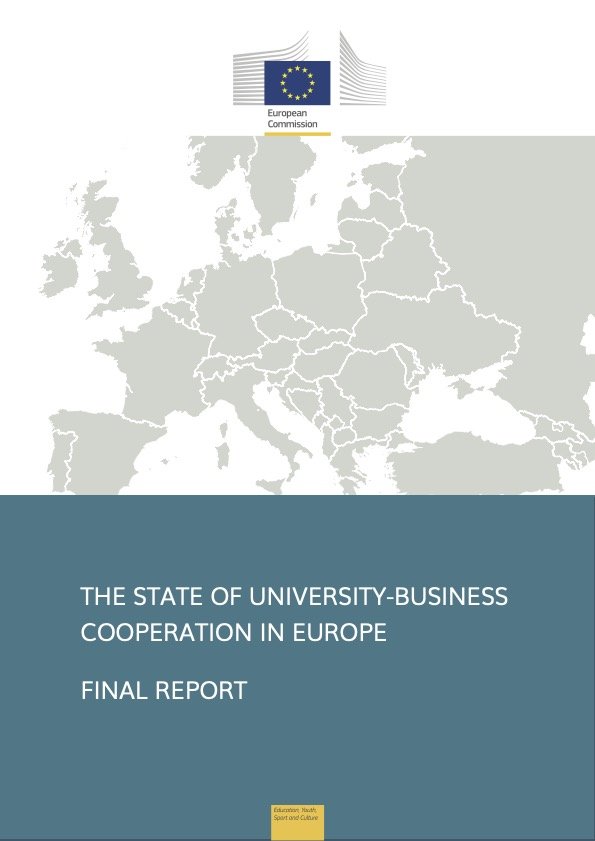The State of University-Business Cooperation in Europe
This report explores the state of play of university-business cooperation (UBC) in different countries, examining the form and extent of main drivers and barriers for the different stakeholders, regulatory frameworks and the type and extent of existing measures supporting UBC at a national level.
Authors: Professor Dr Todd Davey, Arno Meerman, Dr Victoria Galan Muros, Balzhan Orazbayeva and Professor Dr Thomas Baaken
Publication date: 2018
The results showed that, given the right circumstances, UBC can be a highly positive activity for all parties involved. Particularly, businesses are starting to realise the benefits of partnering or working with Higher Education Institutions (HEIs) as a source of future-oriented innovation as well as talent development that can build a competitive advantage. Moreover, since the last study in 2010-11, there is evidence that HEIs are being increasingly seen as a source of talent, entrepreneurship and a lead player in regional development.
The majority of academics and businesses still do not engage in UBC, although the vast majority of HEIs do, to a certain extent. This limited engagement is reducing the labour market relevance of the study programmes, the employability of graduates and the impact of research.

